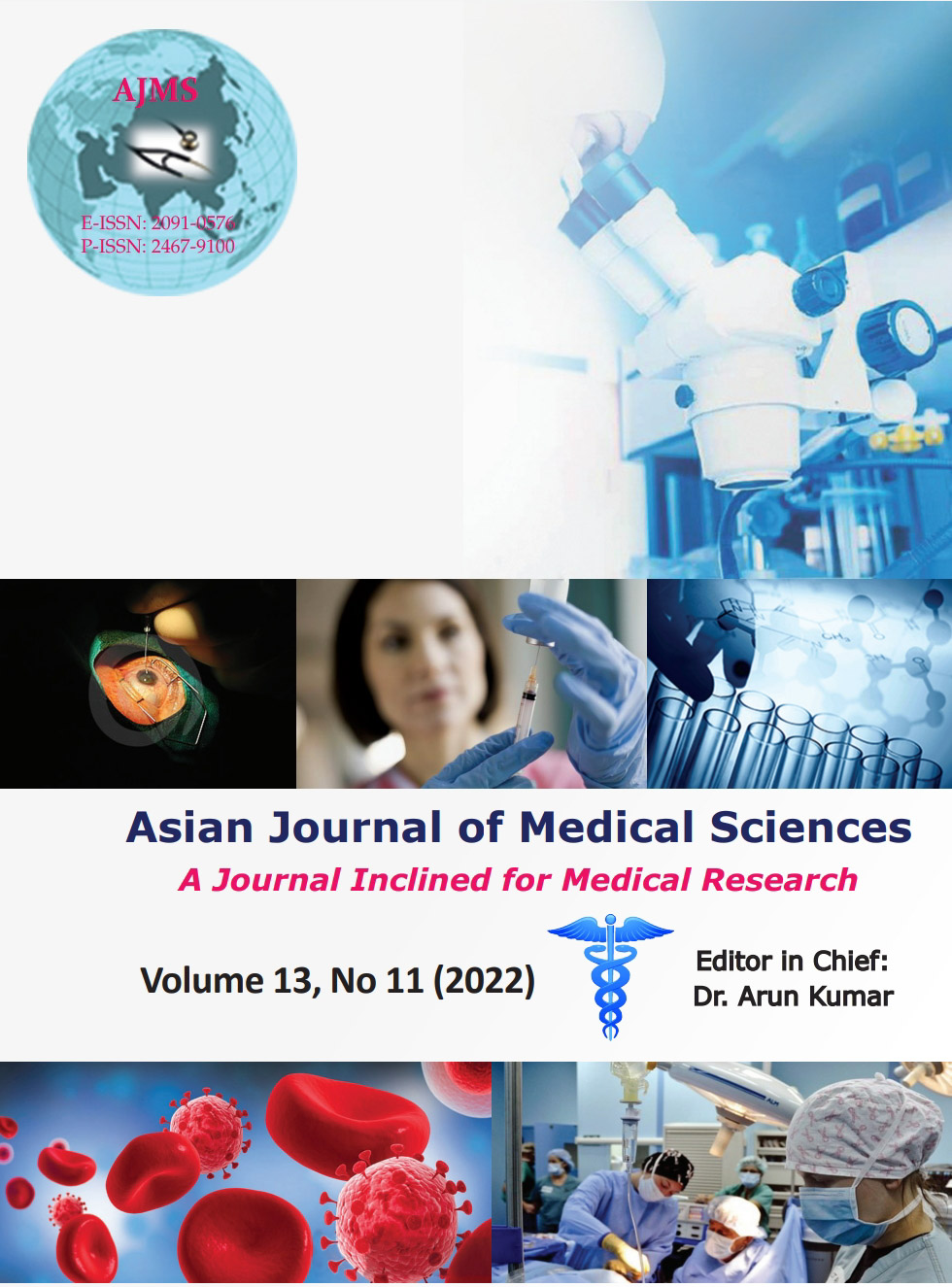Posterior reversible encephalopathy syndrome: An uncommon sequelae of Eclampsia
Keywords:
Eclampsia; Obstetrics; Pre-eclampsiaAbstract
Posterior reversible encephalopathy syndrome (PRES) refers to a clinical neuro-radiologic entity with characteristic features on neuro-imaging depicting posterior cerebral white matter edema. Clinical symptoms include headache, visual disturbances, confusion, and seizures. We report six cases of acute PRES who had eclampsia and presented with recurrent episodes of convulsions and hypertension. Magnetic resonance imaging scan showed diffuse abnormal signal intensities involving deep white matter of occipital region. Follow-up examination after 2 weeks of conservative management, showed marked improvement clinically and on neuro-imaging following which patients were discharged in stable condition.
Downloads
Downloads
Published
How to Cite
Issue
Section
License
Copyright (c) 2022 Asian Journal of Medical Sciences

This work is licensed under a Creative Commons Attribution-NonCommercial 4.0 International License.
Authors who publish with this journal agree to the following terms:
- The journal holds copyright and publishes the work under a Creative Commons CC-BY-NC license that permits use, distribution and reprduction in any medium, provided the original work is properly cited and is not used for commercial purposes. The journal should be recognised as the original publisher of this work.
- Authors are able to enter into separate, additional contractual arrangements for the non-exclusive distribution of the journal's published version of the work (e.g., post it to an institutional repository or publish it in a book), with an acknowledgement of its initial publication in this journal.
- Authors are permitted and encouraged to post their work online (e.g., in institutional repositories or on their website) prior to and during the submission process, as it can lead to productive exchanges, as well as earlier and greater citation of published work (See The Effect of Open Access).




